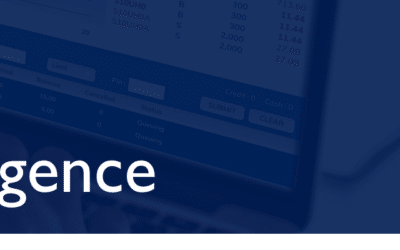Capital markets have been on a wild ride since the COVID-19 pandemic hit and the need for financial communicators to be open, urgent and calming has never been greater. Citadel-MAGNUS founding partner, John Gardner, recently shared some insights with Paul Holmes, Founder and Chair of PRovoke (formerly the Holmes Report), on COVID-19 and what it means for capital markets communication.
The impact on financial communication has been swift, but Gardner says it has presented the industry with enormous opportunity: “What’s certain is that technology, governments, the weather and economic conditions will change, while the need for strategic, relevant and targeted communication will remain a constant. Financial and corporate communication are at the forefront of that need.
“In Australia, we’ve seen financial communication priorities move swiftly from managing the shock of the market correction initially, to explaining the short-term impact of COVID-19 on business to, now, explaining the medium to long-term implications of the virus in the context of the ‘next normal’,” said Gardner. “The two recurring themes of most client discussions have been context and emotion. Guiding clients to listen, listen, listen to stakeholders has also been an important pillar of advice and will remain the case going forward.”
“In the short term our communication mandates have included supporting a direct response to the pandemic, as well as profit downgrades and/or withdrawals, supply chain disruptions, operational shut downs, debt and equity funding challenges, paralysed cash flow, employee health (and privacy issues relating to their health), multi-site internal communication and material threats to corporate transactions.
“A level of uncertainty will continue and no doubt bring immense challenges as we move into the next phase. What is certain is that most companies, across almost all sectors, will need to revisit their corporate strategy in the coming months to re-set goals for the medium to long-term. What comes next is managing stakeholder expectations through effective communication and asking what does the re-set strategy mean for employees, clients, suppliers, investors, communities and regulators, and how will companies be implementing that strategy to bring those stakeholders along with them?”
“It has been a rollercoaster over the past three weeks and the outlook is more of the same. Private equity is also looming; those PE firms that are already involved in deals are reviewing the terms and seeking a better deal, while those that have been sitting on the sidelines, cashed-up, are ready to pounce,” Gardner says.
You can read the full PRovoke article here.


